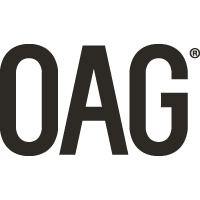Pacific Defense, alongside its affiliate Perceptronics, announced the award of a follow-on contract by the Air Force Life Cycle Management Center (AFLCMC) for the development of advanced Electronic Warfare (EW) mission systems. This contract expands on previous AFLCMC EW development efforts and includes further implementation and flight test of U.S. Government EW software frameworks. These frameworks standardize data processing and techniques delivery within a Sensor Open System Architecture (SOSA)-aligned hardware and software system, fully Open Mission System (OMS) compliant for seamless integration with USAF platforms.
This press release features multimedia. View the full release here: https://www.businesswire.com/news/home/20241211505083/en/

U.S. Air Force Awards Contract to Pacific Defense and Perceptronics for AI/ML-Enabled EW System Development (Graphic: Business Wire)
This effort also advances the application of Artificial Intelligence and Machine Learning (AI/ML) algorithms to the processing of radio frequency (RF) emitters, culminating in systems integration and flight demonstration in an open architecture pod in operationally representative environments.
Perceptronics is at the forefront of applying AI and ML algorithms to address complex defense operational challenges and plays a key role in advancing these capabilities for Pacific Defense. "We are thrilled to continue supporting Pacific Defense and the USAF on this critical initiative," said Elan Freedy, General Manager of Perceptronics. "Our core focus is on the innovative application of AI and ML techniques to enhance the operational effectiveness of mission solutions, and our expertise in the EW domain makes this a perfect fit for us."
“Pacific Defense is fully committed to advancing cutting-edge, fully open architecture solutions for the U.S. Government,” said Frank Pietryka, VP of EW, SIGINT and Autonomy at Pacific Defense. "The integration of these solutions into the Electronic Warfare mission is a national priority, and we are proud to collaborate with our partners at Perceptronics to support the USAF in addressing this critical challenge."
The awarded contract has a 12-month period of performance, running through December of 2025, with primary work locations in Nashua, NH, El Segundo, CA and Fairfax, VA.
About Perceptronics
Perceptronics Solutions develops Artificial Intelligence (AI) and Machine Learning (ML) technologies that help people make better decisions when facing uncertainty or operating in high stress environments. Their world-class scientists, engineers and human-computer interaction experts design and implement solutions that apply advanced algorithms to build systems that focus on the user’s tasks and decisions. By combining innovative science, artificial intelligence, and compelling design, Perceptronics helps clients tackle the most difficult problems now faced by the U.S. Department of Defense and security agencies, local governments, and corporate enterprises. See more information at percsolutions.com and LinkedIn.
About Pacific Defense
Pacific Defense is a leading provider of innovative solutions in C5ISR, Electronic Warfare (EW), Signals Intelligence (SIGINT) and Communications for mission-critical environments. Focused on leveraging Modular Open Systems Approach (MOSA) standards, Pacific Defense delivers cutting-edge technology that enables faster adaptation to emerging threats and evolving mission requirements. With a commitment to excellence and innovation, Pacific Defense plays a key role in shaping the future of defense technologies. For more information, visit pacific-defense.com or follow the company on LinkedIn.
View source version on businesswire.com: https://www.businesswire.com/news/home/20241211505083/en/
Contact details:
For more information contact:
Kent Mader – [email protected]



